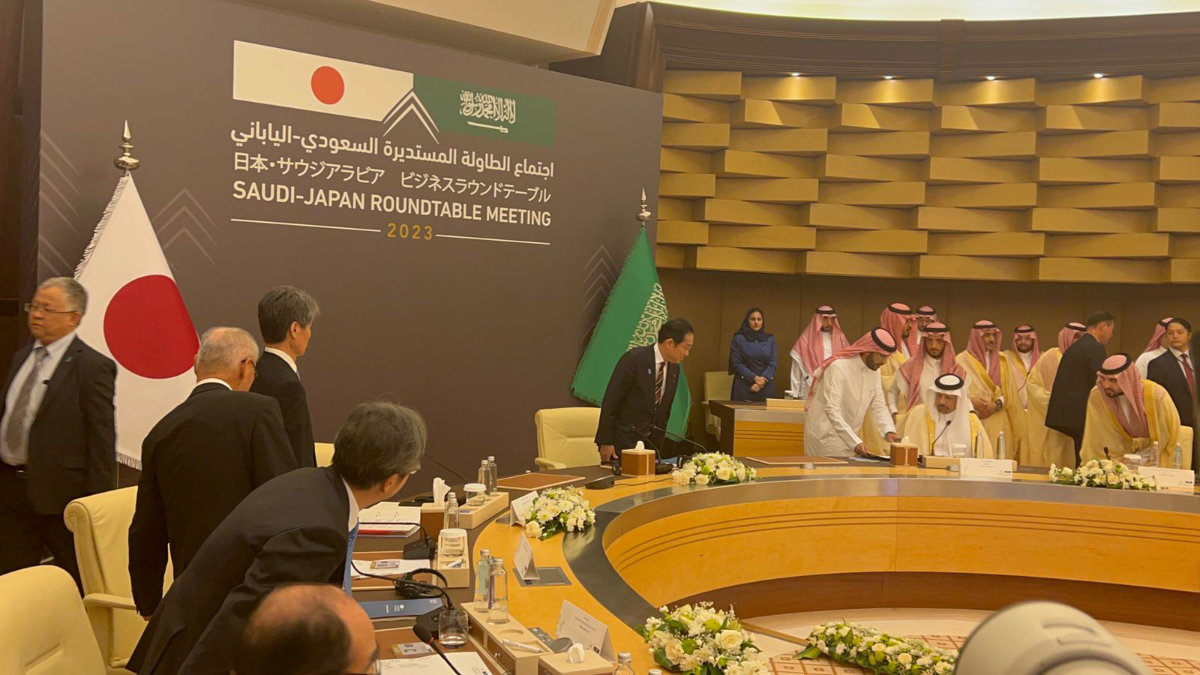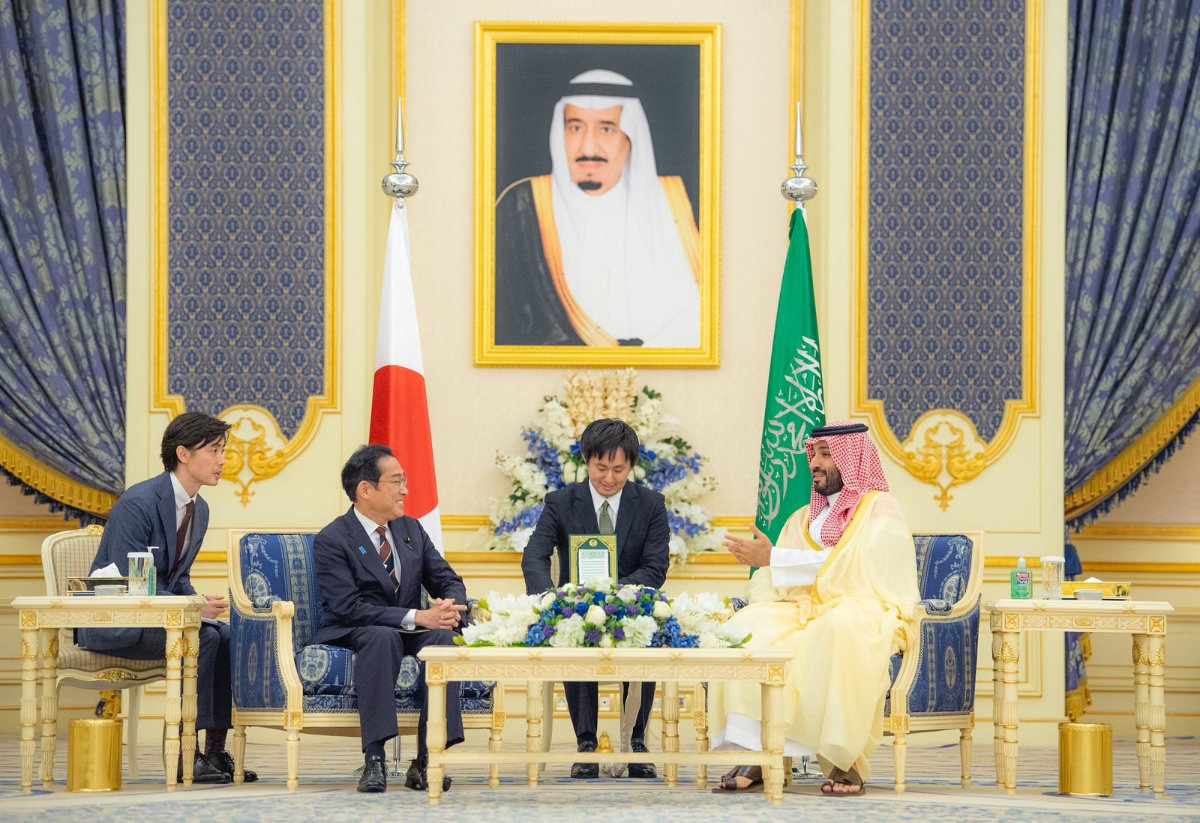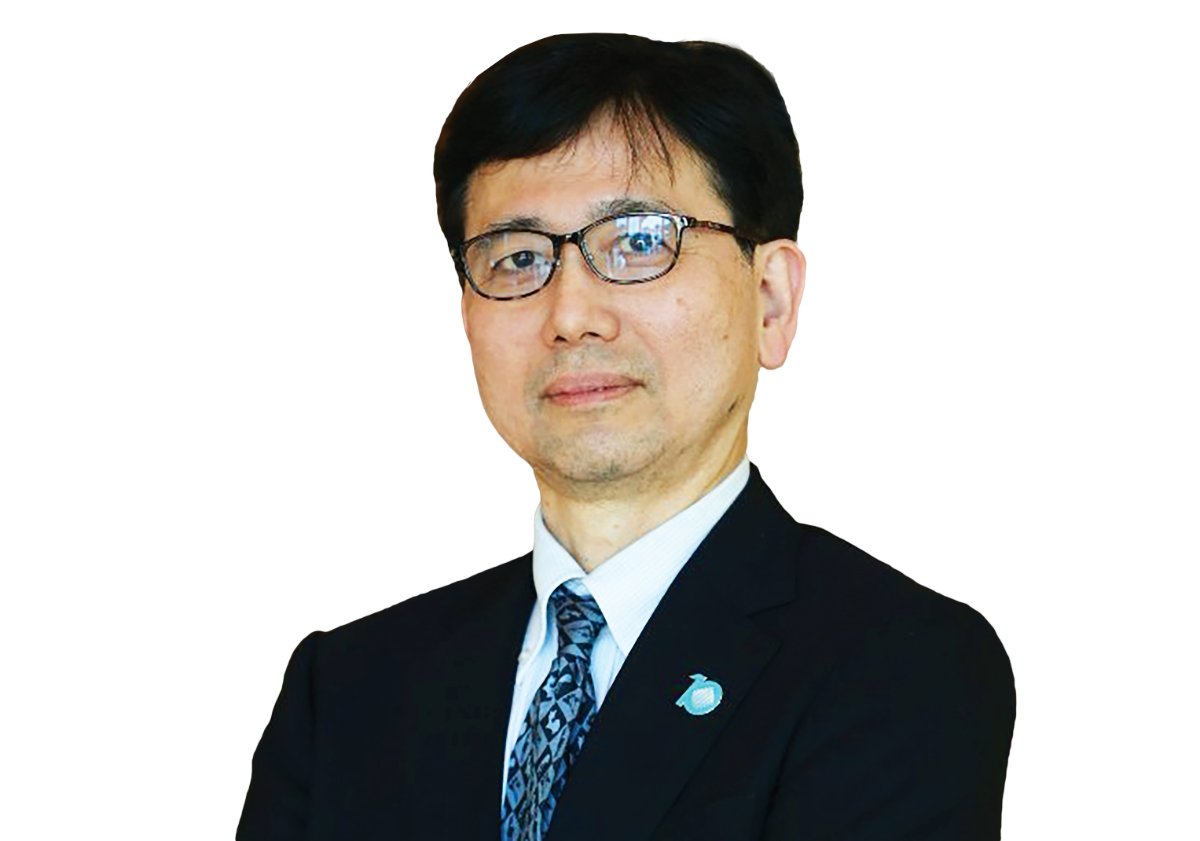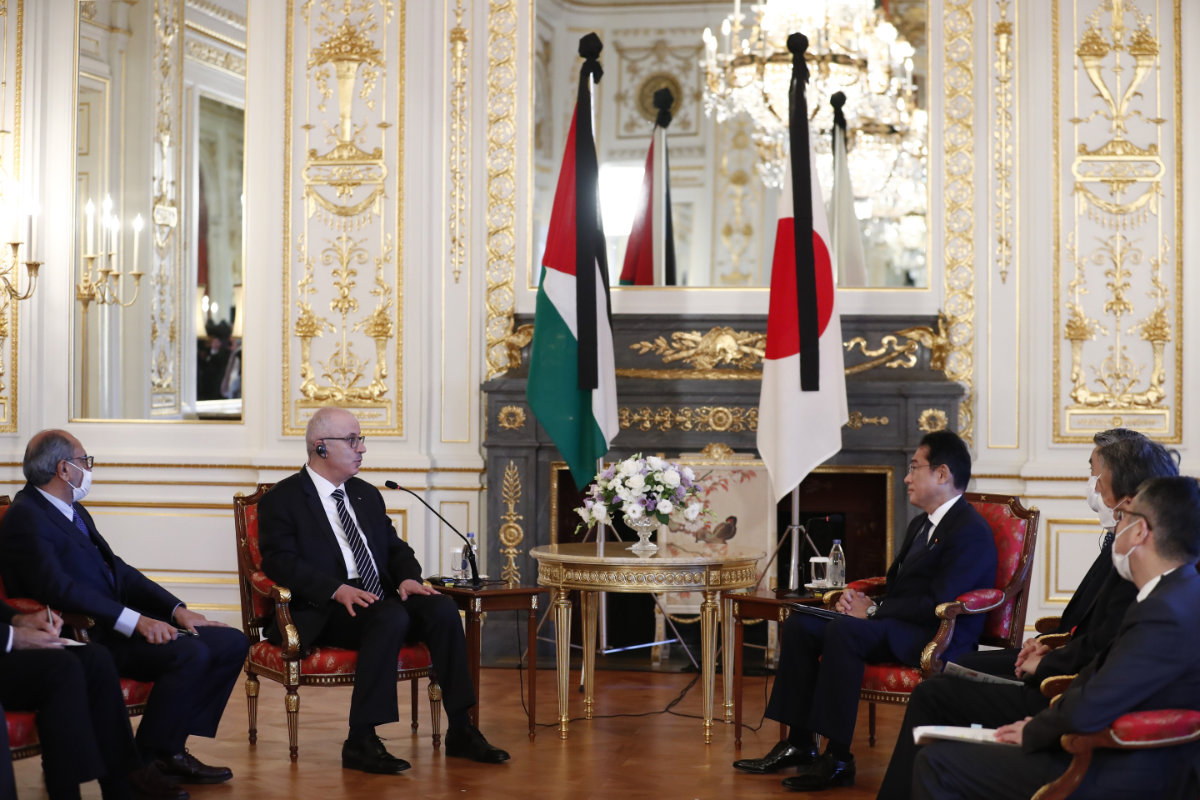JEDDAH: Japan hopes a visit by its prime minister to Saudi Arabia will help accelerate bilateral cooperation in several fields, Noriyuki Shikata, Cabinet secretary for public affairs to the prime minister of Japan, told Arab News Japan on Sunday.
Shikata also said he is aware of the reforms happening in Saudi Arabia, which has recently surpassed Japan when it comes to closing the gender gap, according to recent figures released by the World Economic Forum.
Japan is aware of its need to do more with regards to gender equality, Shikata said, adding that the two countries can learn from each other.
“As Saudi Arabia introduces new policy measures related to gender equality, we can learn from each other,” he said.
Shikata’s comments came as Japan’s Prime Minister Fumio Kishida arrived in Jeddah on Sunday afternoon.
He was joined by a Japanese delegation of businesspeople, ready to explore a Saudi Arabia brimming with investment and cooperation opportunities.
Later on Sunday, Kishida, who is on a tour of Saudi Arabia, the UAE and Qatar, attended the Saudi-Japan Roundtable Meeting along with Saudi Minister of Investment Khalid Al-Falih.
The main objective of the event was to strengthen economic and investment ties between Saudi Arabia and Japan.
Shikata described Kishida’s visit as a “precious opportunity” to deepen ties between the two nations. “In Jeddah, Kishida is discussing how we can grow our cooperation, including in economic areas,” he said.
“Saudi Arabia has been working hard on Vision 2030 for the reform of (the) Saudi economy and diversification of its industries.”

Just hours after his arrival, PM Fumio Kishida participated in a Saudi-Japan Roundtable meeting in Jeddah on Sunday. (SPA)
Shikata explained that Japan has been dependent on Saudi Arabia for oil imports, but the plan is to build on it. “We wish to move on to new areas of decarbonized energy, including hydrogen or ammonia. We see Saudi Arabia as a great opportunity for producing either green or blue energy for the future,” he said.
“We are hoping this visit would accelerate exchanges between the two countries.”
According to Shikata, one of Kishida’s major topics of discussion is the transition to clean energy, a field Japan wants to further collaborate on with Saudi Arabia.
“We need to encourage growth in green energy. Some of the Japanese companies currently visiting Jeddah are looking to develop new solutions for green transition,” he said.
“We think if more Japanese people, including businesspeople, visit Saudi Arabia, they will find more opportunities for cooperation.”

Saudi Arabia’s Crown Prince Mohammed bin Salman (R) meets with Japan’s Prime Minister Fumio Kishida (2nd left) at Al-Salam Palace in Jeddah on Sunday. (SPA)
Shikata said Kishida planned to propose a “global green energy hub.”
He added: “This global green energy journey could include hydrogen in the supply chain or green materials, like green steel and all that is related to the supply chain.
“We hope to reach agreements on this topic. We are hopeful Kishida is likely to propose this idea.”
Shikata believes the relationship between the Kingdom and Japan stands on the cusp of a transformation. He put it this way: Japan has been importing much of its oil from Saudi Arabia, but in 10 to 20 years’ time, the energy supply chain composition could be different.
“Since Japan is so dependent on the Kingdom for energy, we think this close partnership could be a great basis for future plans,” he said.
In terms of regional security and peace, Shikata said Japan “welcomes” the new agreement between Saudi Arabia and Iran.
“We have diplomatic ties with Iran, so when better relations emerged between the two nations, that was good news for the region,” he said

Noriyuki Shikata, Cabinet secretary for public affairs to the prime minister of Japan. (ANJP photo)
Japan has been proactive in ensuring peace and security in the region, especially with regard to the Israel-Palestine conflict.
“Japan has been trying to be constructive in the Middle East peace process and we are against any change in the status quo from any parties,” Shikata said.
“Japan has been proactive in providing humanitarian assistance to Palestinian refugees. We are hopeful that there will be peaceful settlement of issues. We wish to be supportive.”
He added that Japan is aware of Saudi Arabia’s stance on the situation, and the Asian country is “eager” to support the Kingdom’s efforts.

Japanese Prime Minister Fumio Kishida holds bilateral talks with Palestinian Prime Minister Rami Hamdallah (2nd-L) in Tokyo on September 28, 2022. (AFP/File photo)
Japan is also engaging in some recovery projects in Yemen through the UN and hoping to promote peace there as well.
Moving on to the other geopolitical topics, Shikata pointed out that Kishida has imposed sanctions against Russia since its invasion of Ukraine in February of last year.
“Because Japan has suffered from a nuclear power-plant disaster in 2011, there has been expectation from the Ukrainian side to support recovery and reconstruction of the country after a ceasefire,” Shikata said.
As Japan and Saudi Arabia cooperate on fields such as renewable energy, Shikata told Arab News Japan that cultural developments are important as well.
“I understand that Crown Prince Mohammed bin Salman is a big fan of anime,” he said, pointing out that the Saudi sovereign wealth fund, the Public Investment Fund, has made “investments in the entertainment industry,” one of them being “a substantial one in Nintendo.”
Elaborating on the topic, Shikata said: “Given this appreciation of Saudi people for Japanese pop culture or anime, I think there’s room for young Saudi students to come to Japan and start studying Japanese because they are interested in anime.”

Earlier this year, the Saudi company Manga Productions signed a partnership with Japan's Tsubasa Co. to produce and distribute “Captain Tsubasa”, also known as Captain Majid, and various other projects. (Supplied)
He added that appreciation for the hit anime “Captain Tsubasa,” or “Captain Majid,” in the Arab world can be an opportunity for cultural exchanges.
As Saudi Arabia aims to host the World Expo in 2030, several countries have voiced their support for its bid ahead of the final vote in November.
“Saudi Arabia is a very good candidate, and we hope that at the Osaka, Kansai Expo 2025, the Saudi pavilion will be very popular,” Shikata said.
“I’m sure Saudi (Arabia) will be a very competitive candidate in terms of hosting such events.”
Kishida will travel to the UAE and Qatar to continue his first trip to the Middle East since assuming office in 2021.




























